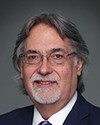Our industry is extremely proud of responsible care. This was founded in Canada in 1985. It's now practised in 73 countries worldwide and by 95% of the top 150 chemical companies worldwide. It is “the” global ESG standard for the chemistry sector.
It's also a condition of membership for our association. We're a club of leaders, so when we come to the table, you're not getting the perspective of the entire chemistry industry. You're getting the perspective of the leaders who are committed to continual improvement and betterment of the environment and of society.
At its heart, the initiative covers more than 170 different requirements that go well beyond any regulation in Canada. It does oblige the members to take proactive efforts to protect the environment, as well as worker, community, customer and consumer health.
More broadly, though—and that's why we've been so involved with this process, both with the regulators and with other stakeholders—it's intended to ensure that the industry has awareness of, and is responsive to, society's changing expectations for the industry. You can see that no more so than in the last four years. This is an initiative that back in 1985 was largely focused on what happened inside our plant gate. That's not enough for society today.
In the last four years, what you've seen is that we have integrated commitments to indigenous reconciliation and engagement into responsible care, and just this past month, our board of directors also included commitments to diversity, equity and inclusion.
This is really important because one of the things at the heart of responsible care is that all these elements are auditable once every three years, and the reports are made publicly available. It's not just an empty commitment that, yes, I'm going to address indigenous engagement and reconciliation, and that, yes, I'm going to address diversity, equity and inclusion. I'm going to do it. I'm going to have a formal process to do it. I'm going to work with my critics and stakeholders to do it. I'm going to be audited, and the results are going to be publicly reported.
We think it's a world-class initiative, and in fact, it is a world-class initiative. We appreciate the opportunity to let parliamentarians know more about it.
Thank you.




